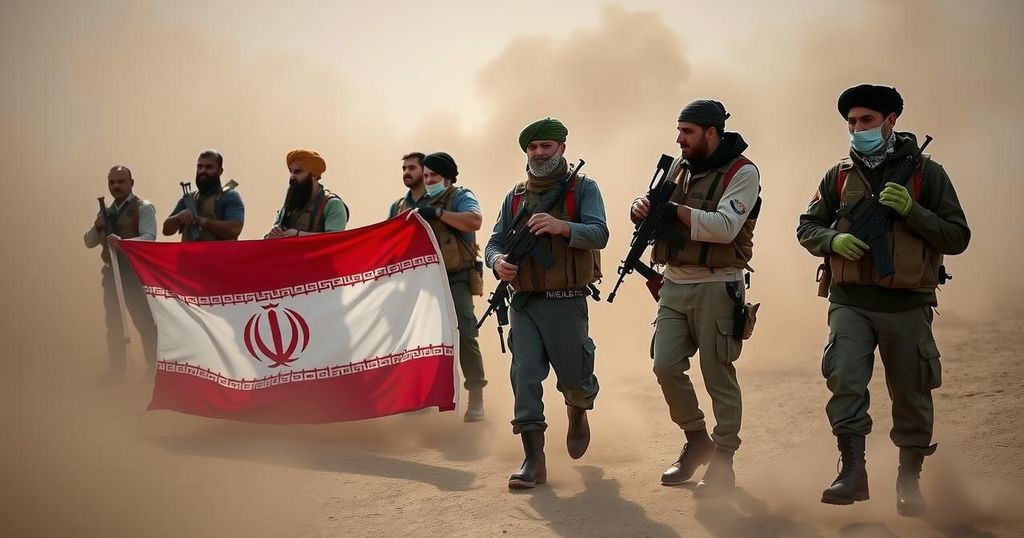The Iraqi Popular Mobilization Units (PMU) pledged renewed allegiance to Iran, led by Faleh Al-Fayyad, during a meeting commemorating their role in defeating ISIS. Amidst this declaration, the PMU and Iranian-aligned militias are shifting focus from Israel to developments in Syria following a leadership change there. Additionally, Sunni and Kurdish political factions in Iraq are optimistic regarding the potential benefits emerging from the Syrian political landscape.
In a reaffirmation of allegiance, the Iraqi Popular Mobilization Units (PMU), also known as Hashd al-Shaabi, expressed their loyalty to Iran as detailed in a recent report by the Islamic Republic News Agency (IRNA). Faleh Al-Fayyad, the head of the PMU, made these remarks during a meeting in Diyala province, commemorating the group’s role in defeating ISIS after their invasion of Iraq in 2014. Al-Fayyad emphasized the PMU’s fidelity to Iran, particularly honoring the late Qassem Soleimani, who was instrumental in the fight against ISIS but was assassinated in a US drone strike in January 2020. Additionally, he acknowledged the contributions of Abu Madhi al-Muhandis, a leader of Kataib Hezbollah, who perished in the same airstrike.
Amidst these declarations, Iranian-aligned militias in Iraq have reportedly shifted their focus away from Israel and toward developments in Syria. A recent meeting between Syrian leader Ahmed al-Sharaa and an Iraqi delegation, including Hamid al-Shatri, the head of the Iraqi National Intelligence Service, highlights these changing priorities. Furthermore, Hadi al-Amiri, leader of the Badr Organization—a component of the PMU—asserted confidence regarding Syria’s new political landscape while also expressing concerns over its potential impact on Iraq’s stability. He underscored the necessity to preserve the integrity of Syria amidst these transitions.
Concurrently, Sunni leaders and the Kurdish political factions in Iraq are optimistic about the possibility of the Syrian power shift benefiting their political standing. They are particularly interested in the emergence of a unified Kurdish government in eastern Syria that could foster inter-party cooperation within Iraq. The evolving situation in Syria represents a critical juncture for Iraqi politics, as stakeholders closely observe these developments to ascertain their implications.
The context of this article revolves around the intricate relationships between Iraqi militias, particularly the PMU, and Iran, augmented by historical conflicts in the region. The significance of Iranian influence in Iraq stems from the strategic collaboration between the PMU and Iranian-backed forces in the fight against ISIS, catalyzing strong rhetorical commitments to Tehran. Additionally, the shifting dynamics regarding Syria’s political landscape introduces new concerns and opportunities for Iraq’s various factions, illustrating the interconnected nature of regional politics.
In conclusion, the PMU’s reaffirmation of loyalty to Iran underscores the ongoing influence of Tehran in Iraqi militias, while the renewed focus on Syria reflects shifting priorities amid changing regional dynamics. The political landscape in Iraq is increasingly interlinked with developments in Syria, with various sectors of Iraqi society, including Sunni leaders and Kurdish politicians, actively engaging with these transitions to navigate their interests. This pivotal moment holds substantial implications for the future political equilibrium in both Iraq and Syria.
Original Source: www.jpost.com







